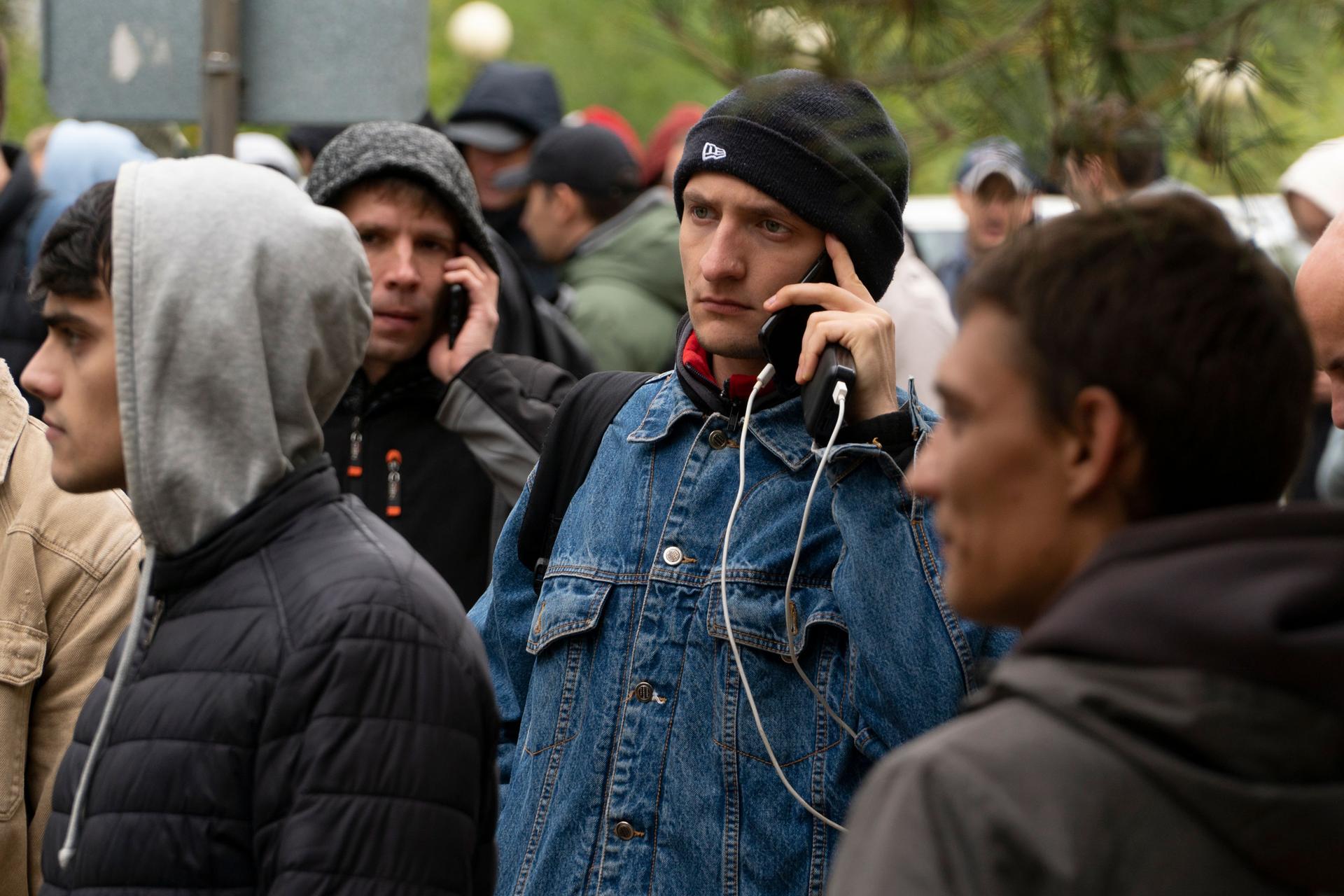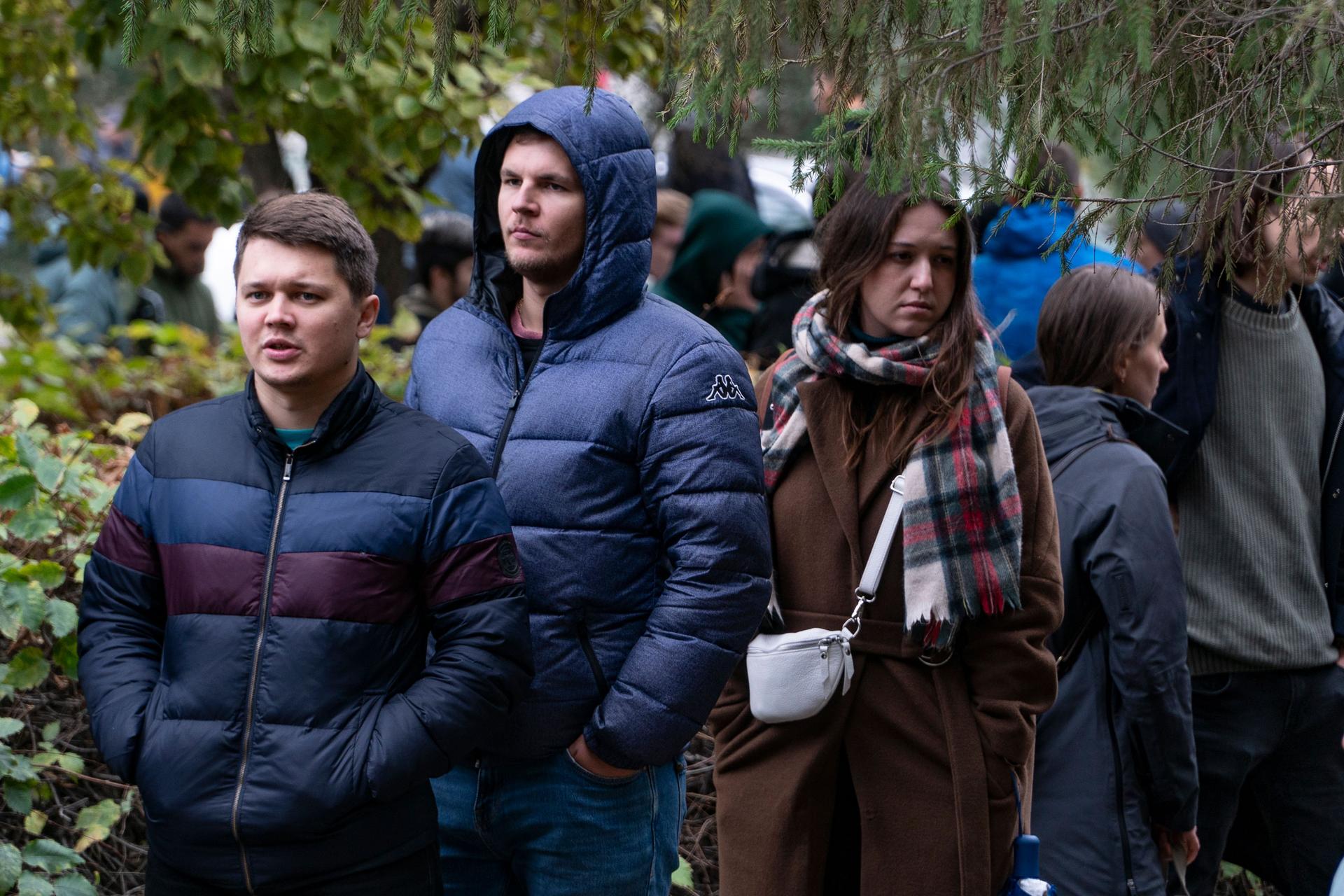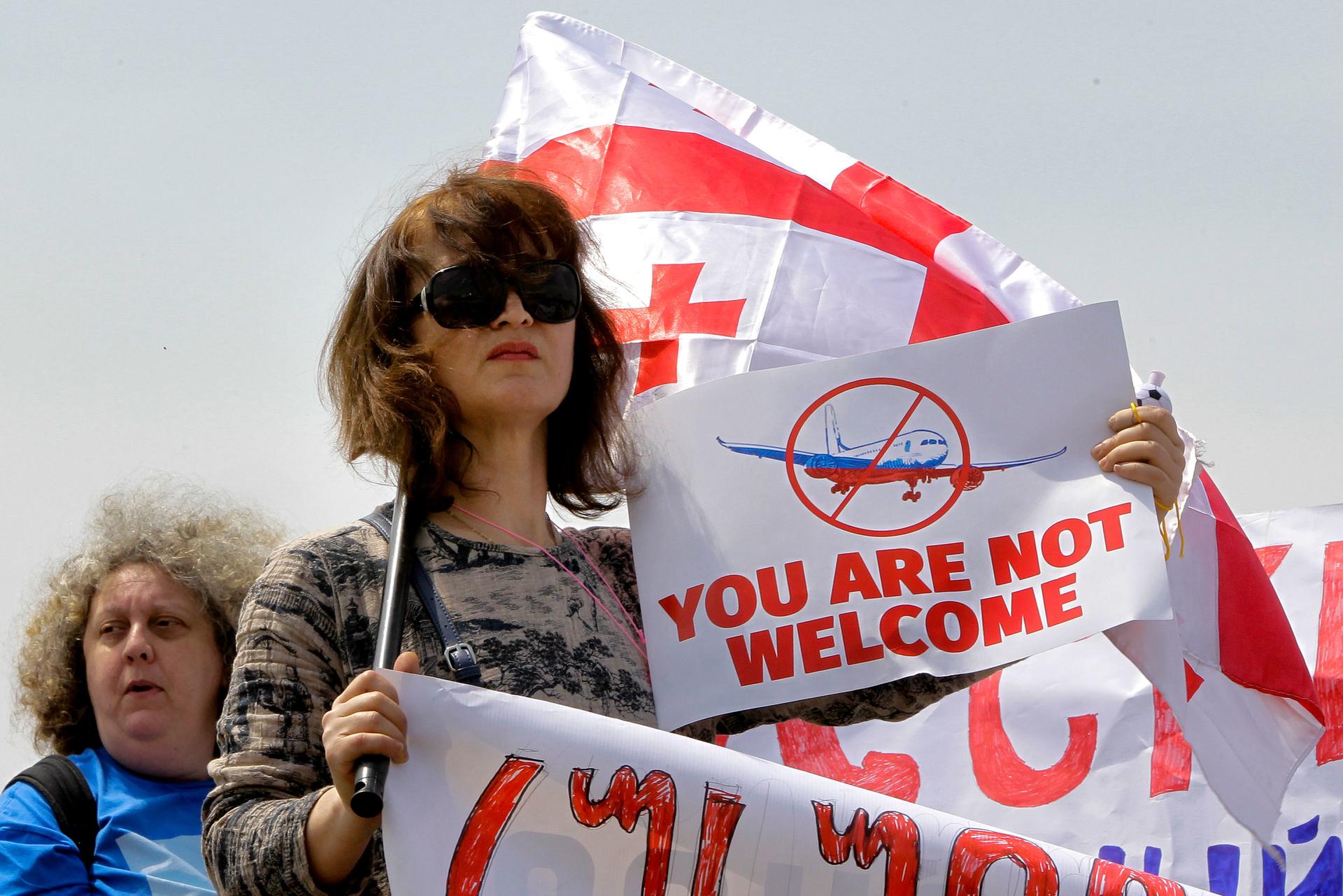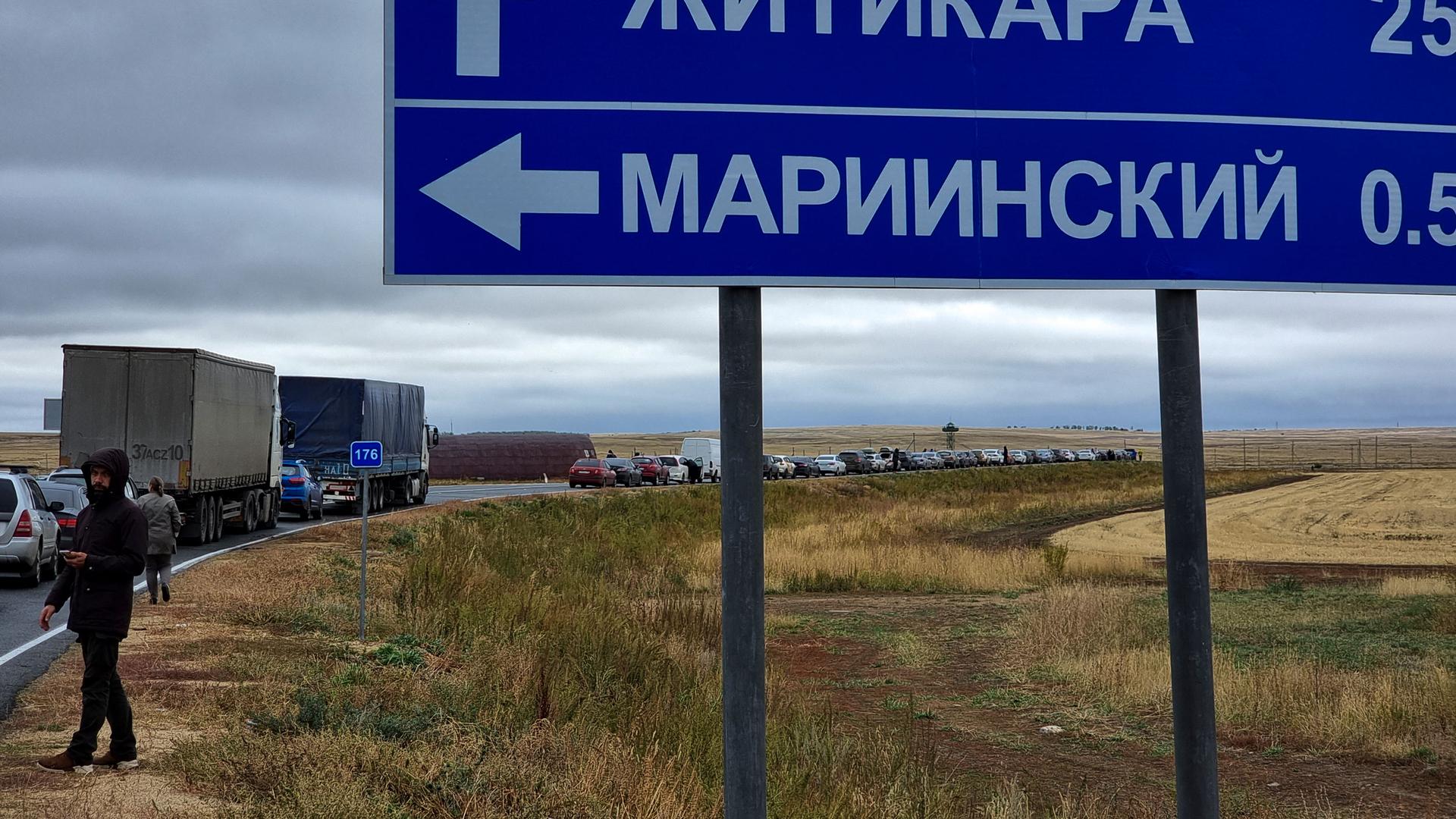Evgenia Baltatarova, a journalist and activist in Siberia, started posting online about her opposition to the war soon after Russia’s full-scale invasion of Ukraine in February of 2022.
Just a week after her posts appeared, more than a dozen police officers showed up at Baltatarova’s apartment with a search warrant as part of a crackdown on Russians who speak out against the conflict, which is technically illegal in Russia.
“I knew that something bad was going to happen, that repressions are coming, because of this war,” Baltatarova said.

Police eventually opened a criminal case against Baltatarova for spreading fake news about the war. But by then she had already crossed the border to safety in nearby Kazakhstan.
Baltatarova quickly settled into her new home and found a job and friends. Kazakhstan’s location was relatively close to family in Siberia who could easily visit her.
But as the conflict in Ukraine dragged on, Baltatarova and other anti-war Russians in Kazakhstan started having problems. Kazakh authorities detained Baltatarova when they learned of the criminal charges she faces in Russia. They eventually released her with a strict stipulation: She is not allowed to leave Kazakhstan.
Since her detention, Baltatarova has faced constant bureaucratic challenges to remain in the country. Recently, authorities didn’t renew her work permit. She could potentially be deported to Russia where she said that she faces a jail sentence of up to 15 years.
“This is the most dangerous situation I’ve ever been in my life. I’m not a criminal, I’m just a journalist,” Baltatarova said.
Baltatarova submitted an application to apply for asylum in Kazakhstan, which allows her to legally remain in the country while her case is processed. But even that doesn’t exactly give her peace of mind.
Recently, Kazakhstan deported a Russian officer who also applied for asylum. He is currently serving more than six years in jail for avoiding military service.

Harboring anti-war Russians has become a liability for former Soviet countries like Kazakhstan that border Russia. Many people in the region strongly support Ukraine, but their governments still maintain close economic and security ties with Russia. Countries in the area have increasingly taken measures to not appear welcoming to Russian dissidents.
In recent months, some Russian activists who strongly oppose the war have been detained in nearby countries or even sent back to Russia to face criminal charges related to their opposition to the war.

Countries in the region are taking different approaches to dealing with Russian migrants.
Georgia, in the South Caucasus, has become a prominent hub for Russians leaving their country because of the war. While much of the world is severing ties with Russia, Georgia’s government has recently developed closer relations with Moscow. Earlier this year, Georgia even opened direct flights with Russia for the first time in years.
While many Russians continue to arrive in Georgia, the country is off limits for some. Over the last year Georgian border agents have refused to let journalists as well as prominent Russians who publicly oppose the war in Ukraine enter the country.
“Border officials told me I wasn’t allowed to enter the country, even though I had never committed a crime there,” said Katya Arenina, an investigative journalist from Russia who was turned away at the airport in Georgia’s capital, Tbilisi.
Arenina, who works with the investigative outlet Proekt, which has produced investigations about Russian President Vladimir Putin, said she was never given a reason why Georgian officials denied her entry into the country.
Russians who have managed to emigrate to the European Union, in countries that are firmly out of Russia’s orbit, still don’t exactly feel welcome. Russians in the EU who spoke to The World said landlords often don’t want to rent to them. And they can’t open bank accounts because of sanctions which makes starting a new life logistically challenging.

In countries like France, Russians exchange information over Telegram groups about how to remain in the country legally and adjust to life in a place where some feel their presence is not wanted.
Anti-Russian sentiment is tearing up some people’s lives.
Nikolai, a Russian who asked not to use his last name out of security concerns, moved to Estonia before the war to launch a startup. But he said investors are cutting off funding from companies founded by Russians because of the potential liability, which is killing his business and threatening his ability to remain in the country.
“For me, like personally, it is the hardest time in my life,” Nikolai said.
He is currently having trouble renewing his residency permit because Estonia has made the process far more difficult for Russian citizens. His wife and daughter, whose visas were tied to his, have already had to return to Russia because they could no longer stay in the country.
“I’m not psychologically in my best condition because I haven’t seen my wife and daughter for six months,” Nikolai said.

He also has a son who was attending university in the Czech Republic, but officials suddenly failed to renew his student visa. He is now continuing his education in Georgia.
Nikolai is now also facing the possibility of getting deported back to Russia where he could potentially go to jail for opposing the war or get drafted to fight in Ukraine.
The uncertain futures faced by Russians who fled abroad can be an ever present source of anxiety.
Baltatarova, the journalist in Kazakhstan, is also waiting to renew her expired immigration documents.
“You have to face the danger everyday of being deported or extradited, because we are not accepted as victims of this war,” Baltatarova said.
For Russians who spoke out against the war sometimes it feels like there’s nowhere left to run.
